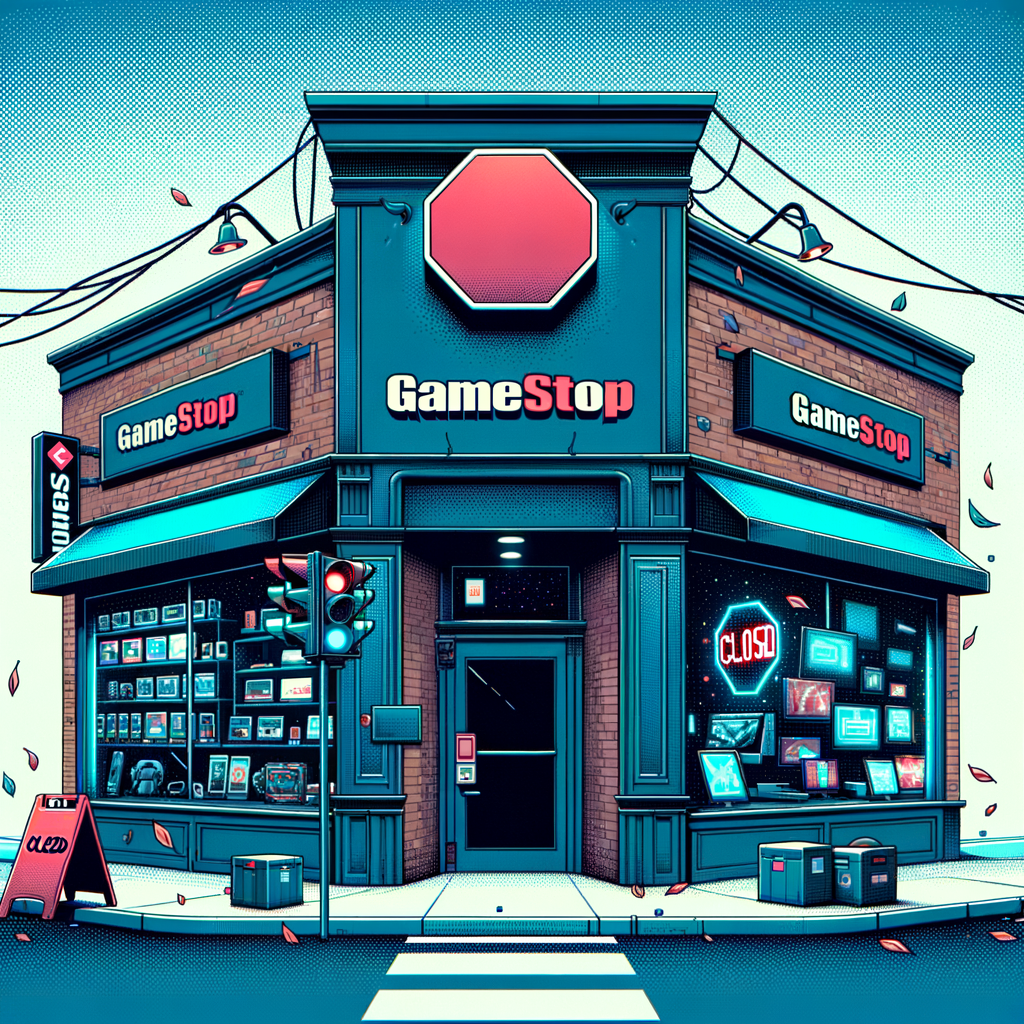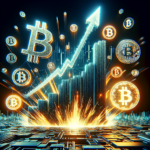Implications of GameStop’s NFT Marketplace Closure on the Gaming Industry
GameStop, the video game retailer that became a household name, has recently announced its decision to close its non-fungible token (NFT) marketplace, a move that has sent ripples through the gaming industry. This decision comes amid growing regulatory concerns surrounding digital assets and their place within the broader market. Despite this setback, the closure of GameStop’s NFT marketplace could have a silver lining for the gaming industry, paving the way for innovation and more robust regulatory frameworks.
The NFT marketplace, which GameStop launched with much fanfare, was seen as a bold step into the digital future, a testament to the company’s commitment to staying relevant in an ever-evolving industry. However, the regulatory landscape for NFTs and digital assets is still in its infancy, with governments around the world grappling with how to oversee these new types of assets. GameStop’s decision to step back from the NFT space is a reflection of the uncertainty that many companies face when navigating this uncharted territory.
Despite the closure, the gaming industry remains poised for growth and transformation. The NFT marketplace by GameStop was a pioneering effort that demonstrated the potential for integrating blockchain technology into gaming. It showed that there is a significant interest in digital ownership and collectibles, which could lead to new revenue streams and ways to engage gamers. As the industry continues to explore these possibilities, the lessons learned from GameStop’s venture will undoubtedly inform future endeavors.
Moreover, the closure of GameStop’s NFT marketplace could serve as a catalyst for clearer regulations. With major players like GameStop facing challenges, regulators may be prompted to develop more comprehensive guidelines that could foster a safer and more stable environment for digital assets. This, in turn, would benefit the entire gaming industry by providing a clear legal framework within which companies can innovate and consumers can participate with confidence.
The optimism in the gaming industry also stems from the fact that technology and creativity are at its core. Game developers and publishers are known for their adaptability and for turning challenges into opportunities. The end of GameStop’s NFT marketplace is not the end of NFTs or blockchain in gaming; rather, it is a moment of recalibration. The industry is likely to see new and improved platforms that address the regulatory concerns that led to GameStop’s withdrawal.
Furthermore, the gaming community is a powerful force, one that has shown time and again its ability to shape the direction of the industry. Gamers’ enthusiasm for NFTs and digital collectibles has not waned, and their demand for innovative experiences will continue to drive the market forward. As companies seek to meet this demand, they will do so with a greater understanding of the regulatory framework, ensuring that they operate within the bounds of the law while still pushing the boundaries of what is possible in gaming.
In conclusion, GameStop’s decision to close its NFT marketplace is a significant development, but it is not a death knell for the integration of blockchain technology in gaming. Instead, it represents a moment of reflection and recalibration. The gaming industry is resilient and innovative, and it will continue to explore the potential of NFTs and digital assets. With the expectation of clearer regulations on the horizon, the future of gaming remains bright, full of possibilities for players and developers alike. GameStop’s pioneering spirit will live on as the industry learns from this experience and moves forward into a future where digital ownership and gaming experiences are more intertwined than ever.
Regulatory Challenges in the NFT Space: Analyzing GameStop’s Decision to Shut Down Its Marketplace
GameStop to Close NFT Marketplace Due to Regulatory Worries
In a surprising turn of events, GameStop, the video game retailer that became a household name during the pandemic-era trading frenzy, has announced its decision to close down its non-fungible token (NFT) marketplace. This move underscores the growing regulatory challenges that companies in the NFT space are facing, as they navigate the complex and evolving landscape of digital asset regulations.
The decision by GameStop to shutter its NFT marketplace comes at a time when the company had been making concerted efforts to reinvent itself in the digital age. The marketplace, which was launched with much fanfare, was seen as a strategic pivot towards embracing the burgeoning world of blockchain and digital collectibles. However, the regulatory environment has proven to be a formidable hurdle, with concerns about the legal status of NFTs and the potential for regulatory action casting a shadow over the industry.
Despite the setback for GameStop, the broader NFT market remains a hotbed of innovation and creativity. Artists, musicians, and creators from various fields have flocked to NFTs as a new medium for expressing their art and monetizing their work. The technology behind NFTs, which ensures the uniqueness and ownership of digital assets, has opened up a world of possibilities for authenticating and selling digital content.
Nevertheless, the regulatory landscape has been a moving target. Regulators around the world are grappling with how to classify and govern these digital assets. Issues such as consumer protection, anti-money laundering (AML), and know your customer (KYC) compliance are at the forefront of regulatory discussions. As a result, companies operating in this space are required to be agile and proactive in responding to new guidelines and regulations.
GameStop’s decision to close its NFT marketplace is a cautionary tale for other players in the industry. It highlights the importance of regulatory compliance and the need for businesses to stay ahead of the curve when it comes to understanding and adhering to legal requirements. The closure also serves as a reminder that the NFT space is still in its infancy, and there is a significant amount of regulatory uncertainty that needs to be navigated.
On the flip side, the challenges faced by GameStop could also be seen as an opportunity for the industry to mature and for clearer regulations to emerge. A well-regulated market could lead to greater consumer confidence and stability, paving the way for more widespread adoption of NFTs. As the market evolves, it is likely that best practices and standards will develop, providing a clearer framework for companies to operate within.
Moreover, the optimistic view is that regulatory clarity will ultimately benefit the NFT ecosystem by weeding out bad actors and ensuring that legitimate businesses can thrive. As regulators and industry participants work together to establish a balanced approach to governance, the NFT market could see a new era of growth and innovation.
In conclusion, while GameStop’s exit from the NFT marketplace is a significant development, it is but a chapter in the ongoing story of the NFT industry’s evolution. The regulatory challenges are real, but they also present an opportunity for the market to strengthen and for companies to build more sustainable and compliant business models. As the dust settles, it is likely that the NFT space will continue to captivate the imagination of creators and collectors alike, with the promise of a more regulated and robust market on the horizon.







